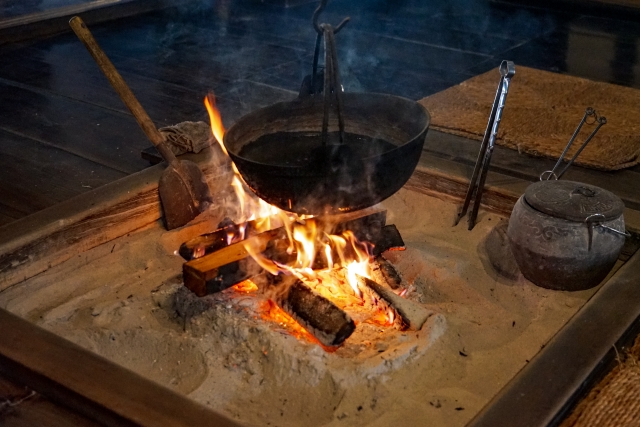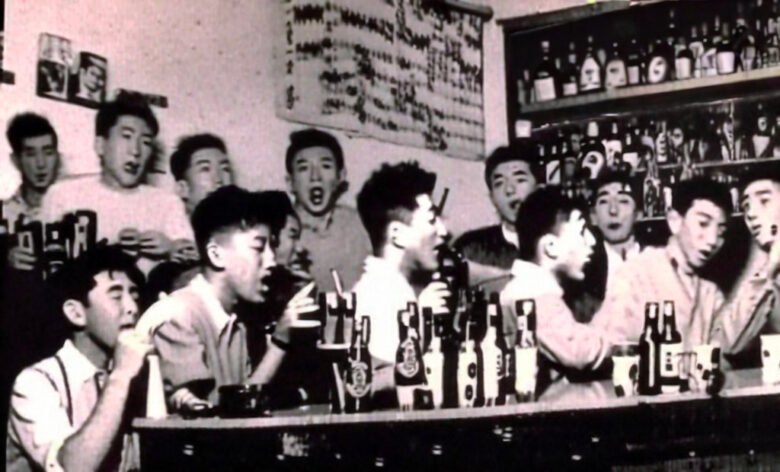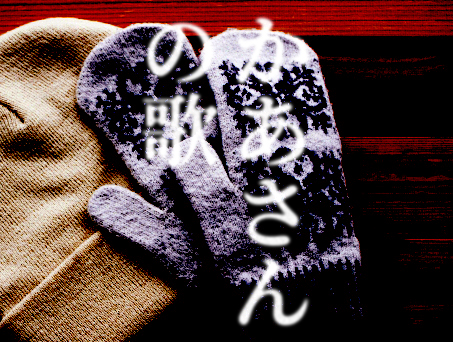Kaasan no uta
Kaasan ga yonabe wo shite tebukuro ande kureta
“Kogarashi fuicha tsumetaka route sesseto andadayo”
Furusato no tayori wa todoku, irori no nioi ga shitaKaasan wa asaito tsumugu, ichinichi tsumugu
“Otou wa doma de warauchi shigoto, omae mo ganbare yo”
Furusato no fuyu wa samishii, semete radio kikasetaiKaasan no akagire itai, namamiso wo surikomu
“Neyuki mo tokerya mousugu haru dade, hatake ga matteruyo”
Ogawa no seseragi ga kikoeru, natsukashisa ga shimitooruLyrics & Composer:KUBOTA,Satoshi
in1956
Song of mom
My mom knitted gloves until late at night.
“I knit hard because the cold wind would be hard”
A letter from my hometown arrived. I smelled the stove.
My mom spins hemp yarn. Spin all day long.
“Dad is a sword-making job. Do your best too.”
My hometown is lonely. I want to hear it on the radio at least.
Mom’s painful hand hurts, so she uses raw miso as a medicine.
“It will soon be spring if the root snow melts, so the fields are waiting for us.”
It feels nostalgic because you can hear the stream of creek.

The ballad that brings tears to eyes is one where a mother, enduring the winter cold in her rural village, tenderly knits gloves and sends them to her child living far away in the city, her heart full of longing. The rustic dialect in the song creates a sense of distance between mother and child.

But, KUBOTA Satoshi, the lyricist and composer behind this poignant piece, was born and raised in Tokyo. Despite entering university, driven by a passion for literature, he’s rumored to have fled home, carrying the funds given by his parents for tuition. Alongside his work, he engaged in the vibrant “Utagoe undou” (Singing Voice Movement) of that era. Shortly after the war, many students leaned towards leftist activism, yearning for revolution. KUBOTA joined the Communist Party, only to be expelled after a few years, yet the melody he crafted seems touched by the essence of Russian folk tunes, perhaps from that time.

Eventually, KUBOTA’s whereabouts were discovered by his elder brother, leading to parcels arriving from his mother, now concerned for his well-being. It’s said that these experiences, intertwined with memories of Shinshu where he had sought refuge during wartime, contributed to the birth of this song.

As time advanced and the distance between rural and urban life lessened, this song still resonates deeply, perhaps because it strikes a chord within the depths of the Japanese soul, where those sensitive strings are eternally plucked.




コメント